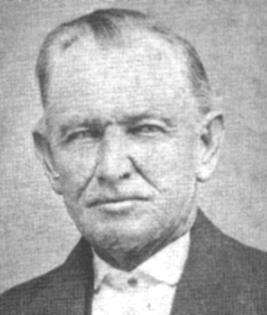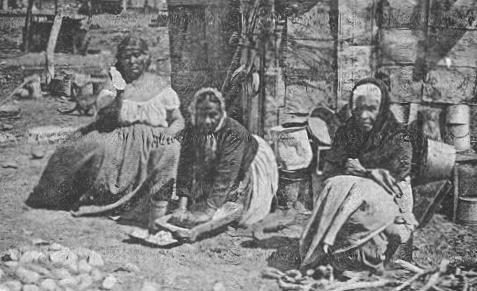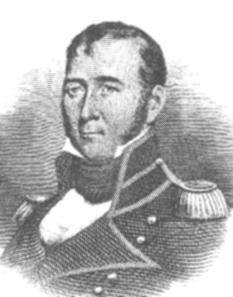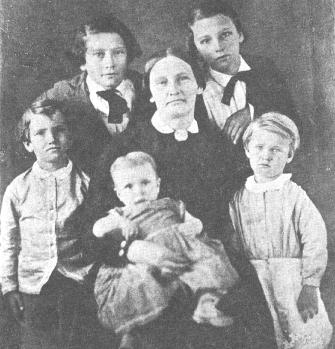SONS OF DEWITT COLONY TEXAS Women "This land was conquered by brave men your
history books will say.... Not a murmur, not a complaint was heard. Even the women displayed a courage and spirit which astonished us and evoked our admiration. Our respect and attachment for them grew hourly, and we are forced to admit that the so-called weaker sex possessed a strength which at times abandoned us--Hartmann & Millard The men of Texas deserved much credit, but more was due the women. Armed men facing a foe could not but be brave; but the women, with their little children around them, without means of defence or power to resist, faced danger and death with unflinching courage---Thomas Rusk There is a great deal said about daring deeds done by men on the frontier, but let me here say, some of the most daring deeds that have been done were done by the heroines as well as heroes of the early settlers of Texas--Captain William Banta But," said the old man [John King], the tears filling his eyes, "we lost William at the Alamo; can we see John go, too?" [defend San Antonio 1842]. The mother looked him full in the face, and in a firm, mild voice, said: "Tis true, that William died at the Alamo, and we have no son to spare, but we had better lose them than our country.--Senator H.E. McCulloch in speech to Senate There is no one who can do justice to the women at that time. God bless the women of Texas!--S.F. Sparks The women of Mexico are angels
of mercy to those in distress. ....Many of the Indian women....fought as stoutly as the men and some were killed, despite every effort to save them--DeWitt Colony Indian Encounters French Exiles 1818 in the Colony Le Champ D'Asile......Suddenly a sinister cry was heard---precursor of misfortune. The provisions were giving out; and the terrible truth of this alarm was too easily verified.....we did not lose heart....receiving only two biscuits .and a small glass of eaude vin.....happiness did not reign in our colony there were, nevertheless, occasional flashes of it. Not a murmur, not a complaint was heard. Even the women displayed a courage and spirit which astonished us and evoked our admiration. Our respect and attachment for them grew hourly, and we are forced to admit that the so-called weaker sex possessed a strength which at times abandoned us.
First DeWitt colonists Old Station on the Lavaca 1825 Noah Smithwick....."Men talked hopeful of the future; children reveled in the novelty of the present, and the women bore their part with heroic endurance. Deprived of friends and former comforts, they had not even the solace of constant employment. The spinning wheel and loom had been left behind---there was as yet no use for them ---there was nothing to spin. There was no house to keep in order; the meager fare was so sirnple as to require little time for its preparation. There was no poultry, no dairy, no garden, no books or Papers---and had there been, many of them could not read; no schools, no churches---nothing to break the dull monotony of their lives save an occasional attack frorn Indians, the howl of some wild animal or the stampede of a herd of buffalo or mustangs. The men at least had the excitement of killing game and hunting bee trees, roping mustangs, hunting buffalo, locating lands and watching for hostile Indians."
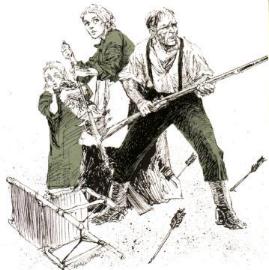 The Women of
Pioneer Days by Mrs. M. Looscan. ...........The general
character of women who willingly venture into unexplored wilds finds illustration in the
lives of a few deservedly famed in the early annals of Texas. While men are animated by
love of adventure, desire for wealth or fame, which convert every obstacle overcome into a
glorious triumph, female pioneers are sustained alone by the strength of their devotion to
others, and weak hands learn to perform labors, and tender hearts to bear trials,
unendurable by the sterner sex, and which in less perilous times would have been
impossible, even themselves. There are places on the Texas coast where women displayed
fortitude and endured hardships illustrative of the wonderful depths of conjugal love, the
great capacity for calmly awaiting a hoped-for result in the midst of untold dangers,
which belong alone to noble souls, to capacious minds. It requires far less strength of
character to face visible danger than to dwell calmly where it is known to be near, but
keeps partially veiled. The Women of
Pioneer Days by Mrs. M. Looscan. ...........The general
character of women who willingly venture into unexplored wilds finds illustration in the
lives of a few deservedly famed in the early annals of Texas. While men are animated by
love of adventure, desire for wealth or fame, which convert every obstacle overcome into a
glorious triumph, female pioneers are sustained alone by the strength of their devotion to
others, and weak hands learn to perform labors, and tender hearts to bear trials,
unendurable by the sterner sex, and which in less perilous times would have been
impossible, even themselves. There are places on the Texas coast where women displayed
fortitude and endured hardships illustrative of the wonderful depths of conjugal love, the
great capacity for calmly awaiting a hoped-for result in the midst of untold dangers,
which belong alone to noble souls, to capacious minds. It requires far less strength of
character to face visible danger than to dwell calmly where it is known to be near, but
keeps partially veiled.
Susanna Dougharty of the Irish McMullen-McGloin Colony. "We are right, I think that we are right to stand by the Republic of Mexico until her birth pangs are over. All through the war our loyalty was with Mexico; after the Battle of San Jacinto, we, with the children, struck out for Matamoros in ox cart. My new-born child died in Matamoros; bone of my bone, flesh of my flesh, lies buried in the churchyard there. The land called, and we returned. In Texas there is always the call of the land! I lived to see my four sons admitted to the bar."
I will relate to the reader one instance I was personally acquainted with. In the spring of 1842, on Sander's creek, east of where Bonham is now located, lived a man by the name of Pink Hughes, with a wife and one child. Hughes went out from home to get up his oxen, when three Indians attacked his house. He had left his gun at home. His wife kept the Indians from entering the house by pointing the gun toward them when they came too close. It was but a short time till the husband came home with his team, and seeing his wife defending the house, and he being unarmed, made an effort to get to the house; at the same time the Indians being on the opposite side of the house tried to cut him off. The wife, with gun in hand, ran to meet her husband and under fire of the Indians she succeeded in reaching him, and amid a shower of arrows they reached the house, his wife being slightly wounded in one arm. As soon as they reached the house the husband opened fire on the Indians and succeeded in driving them off. The Indians left in a southeast direction, and coming across a man by the name of Pitts, who was unarmed, gave him a chase, all parties being on foot. Pitts had some two hundred yards the start, and it being about half a mile to Pitt's house. The Indians pursued, and gained on Pitts, with yells that were calculated to intimidate a demon. The Indians were about to over-take Pitts when Mrs. Pitts saw the situation, and ran with a double barreled shot gun in hand; and fired one shot at them and handed the gun to her husband; they reached the house in safety, while the Indians took another course. There is a great deal said about daring deeds done by men on the frontier, but let me here say, some of the most daring deeds that have been done were done by the heroines as.well as heroes of the early settlers of Texas.
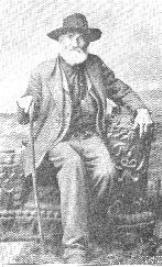 Presidario home invasion and attack on a Texian wife
by Creed Taylor. .....the brave woman beating off her assailants until
timely help chanced to come. The woman fought with the fury of a demon and her loud
screams attracted the attention of a small party hunting in the vicinity, who rushed to
the scene......As news of the affair spread, a posse gathered at the scene. All were
highly wrought and some of them wanted to hang the wretch to the nearest limb; one or two
suggested that the fiend's head be cut off and hoisted on a pole in view of the fort. But
wiser council prevailed---the prisoner was a soldier of the republic, and such a course
would be an insult to the flag; the Mexican authorities would use it as a pretext to
inflict greater tyranny against the colonists. But they would inflict such
punishment as would serve as a warning to his thieving, cutthroat comrades. A bucket of
tar was procured and a heavy coating was applied to the culprit from head to foot. Then,
with her own hands still bleeding from the effects of her terrible fight, the lady ripped
open her featherbed and the trembling wretch was given an ornate dressing of feathers. He
was then mounted astride a rail, and in this garb and manner was carried through the
settlement and village..... Presidario home invasion and attack on a Texian wife
by Creed Taylor. .....the brave woman beating off her assailants until
timely help chanced to come. The woman fought with the fury of a demon and her loud
screams attracted the attention of a small party hunting in the vicinity, who rushed to
the scene......As news of the affair spread, a posse gathered at the scene. All were
highly wrought and some of them wanted to hang the wretch to the nearest limb; one or two
suggested that the fiend's head be cut off and hoisted on a pole in view of the fort. But
wiser council prevailed---the prisoner was a soldier of the republic, and such a course
would be an insult to the flag; the Mexican authorities would use it as a pretext to
inflict greater tyranny against the colonists. But they would inflict such
punishment as would serve as a warning to his thieving, cutthroat comrades. A bucket of
tar was procured and a heavy coating was applied to the culprit from head to foot. Then,
with her own hands still bleeding from the effects of her terrible fight, the lady ripped
open her featherbed and the trembling wretch was given an ornate dressing of feathers. He
was then mounted astride a rail, and in this garb and manner was carried through the
settlement and village.....
Women on the Run Away Scrape. Mrs. Kate Scurry Terrell. .......On the women---brave wives and mothers of brave men fell the responsibility of protecting their families. Knowing the quality of Mexican mercy, they gathered their children and servants and started at once for the Brazos.
Sarah Jane Newman Robinson Scull (Sally Skull). Two Sixshooters and a Sunbonnet: The Story of a Legendary DeWitt Colony Lady. .......[Sally] observed two Indians creeping toward the house........The frightened man removed the lock from his gun and pretended it was broken. "I wish I was two men," he said, "then I would fight those Indians." "If you were one man," cried Sally, "you would fight them. Give me that gun."
An Estranged Wife & Reconciliation by James Nichols.........At Gonzales I taken on a load of hides, and the third day out late in the evening I looked ahead of me and thought I saw a women a foot but she was soon hid from my sight by a bend in the road and I saw her no mor. I was aimeing for a creek ahead of me to pitch my camp, and I arived at the creek, watered my team, filed my bag and drove out to the edge of the prairie, and thare I noticed a woman sitting by the root of a tree. I pulled out on the other side of the road, stoped, turned out my team, carried up som wood, started a fire and taken my grub box out and was going to prepare supper and had not noticed the woman come up to me until she spoke saying, "I will git supper for you if you are willing." When she spoke I knew her voice. I says, "In the name of big Peter, what are you doing here." She ses, "I have left my old man and am going back to my people." I knew whare her people lived and it was a long trip she had started. She had nothing but an old fashened bandanner silk handkerchief tied up full of her best cloaths. After supper I asked her several questions as to how she expect to pay her way over the Gulf, etc. and she said she was going to work her pasage over. She traveled with me the rest of the way down. When we arived thare was a scooner ready to sail. She bid me fairwell, thanking me for my kindness, and entered the boat, and I loaded my wagon and started out. It was then near sundown, and I was near two miles on my way but had about three mor to make to git water and grass. I looked back and saw her comeing in a trot and she waved her bundle and I stoped, thinking maybe she has forgoten something. She came up and said the captain would not take her in to worke her passage. "And now," said she, "I want to go back home with you." I taken her back home and her and her husband lived togeather untill they raised a large family of children and he died. I withhold her name as she is still liveing and respected.
Emily D. West, Emily de Zavala and The Yellow Rose Legend. Three historic documents support the existence of a woman of color associated with events related to the culmination of the independence of Texas from Mexico at San Jacinto in 1836 and numerous invigorating and exciting treatises on the subject have been written about her.
The Angel of Goliad. The story of Francisca (Panchita) Alavez, wife of a Mexican officer and Mexican heroine who saved Texian freedom fighters from execution during the Goliad campaign.
The Prisoners of Matamoros and Ladies Lojero. .....On the following day petitions were prepared and signed in duplicate; one by the municipality, one by the prominent citizens and residents, and another by the ladies of the city, led by Lojero's wife......As Texas is bound to remember with gratitude the friends whom her adopted sons found in an alien and hostile race....
Mexican Women on the The Santa Fé Expedition by George Kendall. ........That the women all pitied us was evident; for the commiserating exclamation of pobrecitos! as they gave us bread, cheese, and such food as they had at hand, fell from their tongues in softest and most feeling tones. They knew their husbands and brothers, and knowing them, felt that little of mercy or kindness could we expect at their hands......We had not traveled more than a couple of miles before a tolerably well-dressed woman came running towards us from a small house, bringing a bottle of the country whiskey, and saying that it was for our use. This we drank upon the spot, and as we thanked the good-hearted creature for her kindness she appeared to feel deeply for us in our misfortunes. Even after we had been hurried off by our inhuman guard, the woman still remained to gaze upon us, looking her last at the pobrecitos, whom she really thought the sun would not set upon alive. The almost universal brutality and cold-heartedness of the men of New Mexico are in strange contrast with the kind dispositions and tender sympathies exhibited by all classes of the women......By-and-by, he is even led to think that the dress of the women, among whom fate, business, or a desire to see the world may have thrown him, is really graceful, easy, becoming: he next wonders how the females of his native land can press and confine, can twist and contort themselves out of all proportion, causing the most gracefully-curving lines of beauty to become straight and rigid, the exquisite undulations of the natural form to become flat or angular, or conical, or jutting, and all in hornage to a fickle and capricious goddess a heathen goddess, whose worshipers are Christians! He looks around him, he compares, he deliberates----the result is altogether in favor of his new-found friends........But then they are joyous, sociable, kind-hearted creatures almost universally, liberal to a fault, easy and naturally graceful in their manners, and really appear to have more understanding than the men. Had we fallen into the hands of the women instead of the men, our treatment would have been far different while in New Mexico.
Waddy Thompson concerning treatment of Santa Fé Expedition prisoners in Mexico. An incident occurred, whilst the prisoners were confined in Tacubaya, which is characteristic, not only of the Mexicans of both sexes, but of woman everywhere. On one occasion, and it was one fo the very few exceptions to the remark that I have just made [concerning relative kind and humane treatment of the prisoners overall], a subaltern Mexican officer struck a Texian who was at work on the streets; a young lady of one of the most respectable families, and I sincerely regret that I have forgotten her name, who happened to be passing by, called the officer to her, and asked him if he was a Mexican by birth. He replied that he was not. She said, "I am rejoiced to hear it, sir, and I did not suppose that you were, for I id not believe that any Mexican would be guilty of so cowardly an act as to strike a prisoner, who dare not return the blow."
Just at this moment Captain Seguin, who had a company of Mexicans in our army, came up, and I said, "Captain, I'll turn these women over to you; take care of them, and the man," and I went on in the fight. It was a running fight. It was three miles from where the fight began to where Almonte surrendered with about six hundred men. My knee gave me trouble, and I was laid up for two days; the third day it was stiff and sore, but Bailey assisted me to walk over to where the prisoners were, which was not very far from where we were camped. While I was walking along the south side of the line of prisoners, a woman on the north line of the enclosure came running through the prisoners; she was talking excitedly in her own language. The guard ordered her to stop, but she paid no attention to him. A man was standing near who understood her language, and he said to me, "She is talking to you." I told him to tell her to stop or the guard would shoot her, and to ask her what she wanted. She told the man that I had saved her life, and the lives of three other women, while one of our men was going to kill her, and she wanted to get near me to tell me that she would know me when, or wherever she saw me, and that if I was ever made a prisoner by her people, and she could get to me that she would release me or die. By this time the other three women came to where she was, and they all said the same thing; then they all threw kisses, and made the sign of the cross on their breasts. I thanked them, but told them that I would never be their people's prisoner. ....Many of the Indian women....fought as stoutly as the men and some were killed, despite every effort to save them--DeWitt Colony Indian Encounters At the Karankawa massacre of French colonists at Ft. St. Louis about 1689.... [the Clamcoëhs or Karankawas] had little trouble slaughtering them all, except the said Jean Baptiste-Talon; two of his brothers, younger than he, named Robert and Lucien; their older sister, named Marie-Magdeleine; and another young Parisian named Eustache Bréman, who was said to be of the family. They were saved by some savage women who, touched with compassion by their youth, loaded them on their backs and carried them into their cabins while their husbands massacred the rest, after the said Talons had seen their mother fall before their eyes. As for their father, he had become lost in the woods sometime previously, having gone in a party with the said Sr. de la Salle, and no one ever knew how he perished. Their other sister [Marie-Elizabeth] had died of illness at the settlement. The aforementioned savage women also saved in the same way the wife of a French officer [Gabriel Minime, Sieur Barbier] who commanded the settlement in the absence of the said Sr. de la Salle and who was also slain. They were likewise moved with tenderness at the sight of the three-month-old baby she had at breast, but the savages returned to their cabins after the massacre, killed her first, and then her child, which one of them dashed against a tree while holding it by a foot. But they did not hurt the said Talons or Eustache Bréman, who were reared and loved by these same savage women who had saved them, as if they were their own children... ....Several of these women accompany their husbands to war, but their only job is to carry away from the battlefield the enemy corpses to make a feast, all together, upon their return.....if it happens that a woman gives birth to a deformed child, she buries it alive as soon as it is born.....also children they are carrying if their husbands abandon them....Women give birth just like animals do, in some grassy spot, and in an open field, alone and without help, then go at once to wash themselves and their child in the nearest river or sea......From the interview with Pierre and Jean-Baptiste Talon in the Archives Nationales, Outre-Mer (Weddle, Robert, ed. La Salle, the Mississippi, and the Gulf. Three Primary Documents. Texas A&M University Press, College Station, TX, 1987).
Fray Gaspar Jose de Solis in his diary during visit to Texas, 1767. ......The men sell and trade their wives. If they take a fancy to other men's wives they exchange for them their own and something of value besides. They trade their wives for those of other men, sell them and lend them to their friends so that these may make use of them. They sell them for a horse, a gun, powder, bullets, beads, or for other things which they prize. Although the men commit these atrocious crimes, the women are very modest. From the time they are born they use a pabigo or breech-cloth, made of hay or pastle [Spanish moss], that modestly covers their loins. They wear this until they die, replacing it with a new one whenever necessary. The married women and those that have been corrupted have their entire bodies covered with marks, figuring flowers, birds and other animals.....the...old women are put to the sword, the children are carried off and eaten, the little boys and girls are sold, and the grown-up women and the larger girls are taken off and made to serve the victors.....the women, except an occasional, coarse-featured one, are graceful and handsome.
Moore's Victory over Comanches on the Colorado 1840.......In the charge Isaac Mitchell's bridle bit parted asunder and his mule rushed ahead into the midst of the Indians then halted and it sulked -- refused to move. A squaw seized a large billet of wood and by a blow on his head tumbled him to the ground; but he sprang to his feet, a little bewildered, and just as his comrades came by, seeing the squaw springing at him knife in hand, they sang out, "Kill her, Mitchell!" With a smile, not untinged with pain, he replied: "Oh, no, boys, I can't kill a woman!" But to prevent her killing himself, he knocked her down and wrenched the weapon from her hands. A hundred and thirty Indians were left dead on the field. Thirty-four squaws and children and several hundred horses were brought in, besides such camp equipage as the men chose to carry with them, among, which were goods plundered at, Linnville the previous August. SONS OF DEWITT
COLONY TEXAS |
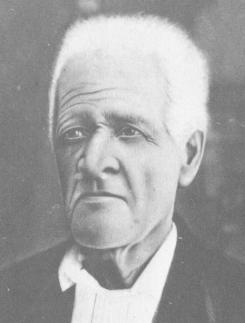
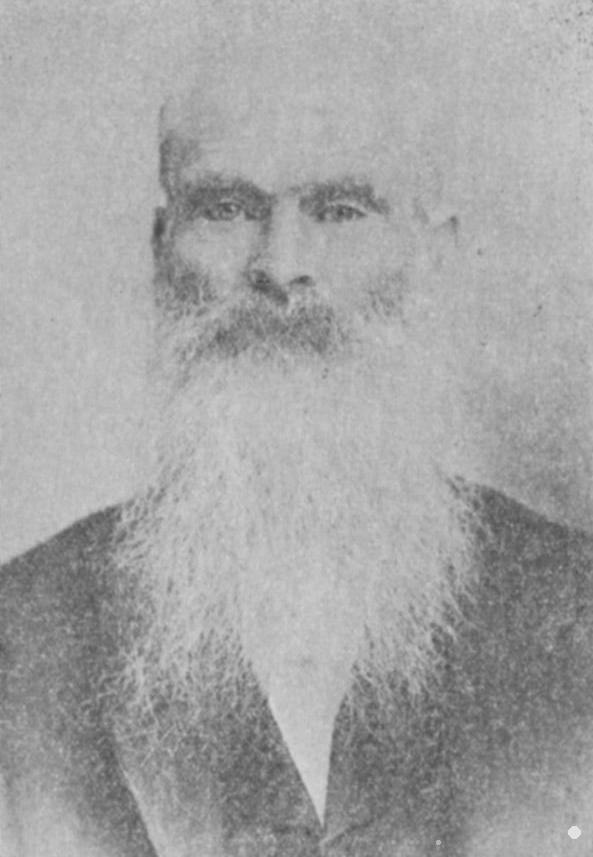
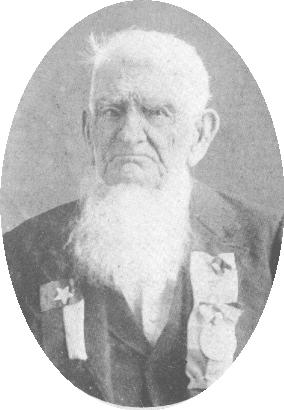
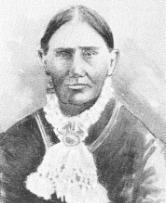
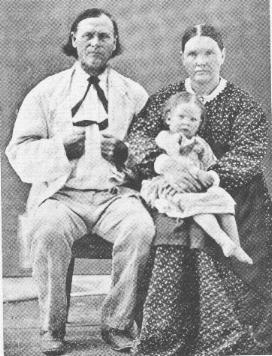 On Texian
Veteran Widows & Pensions by
On Texian
Veteran Widows & Pensions by 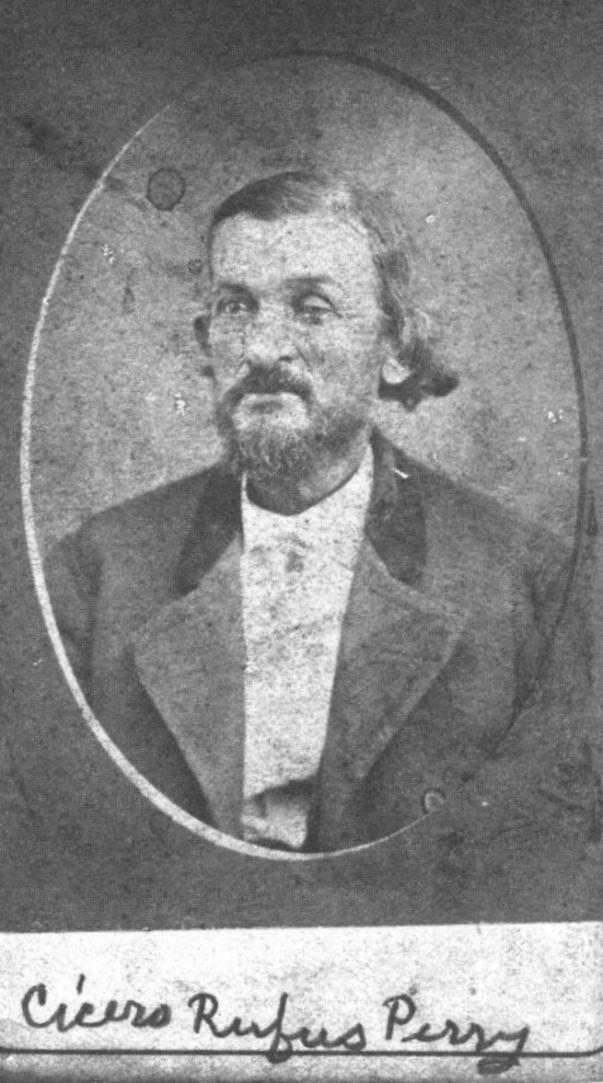 Nursing
Nursing
